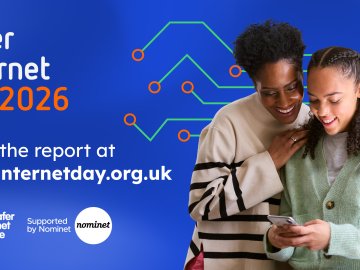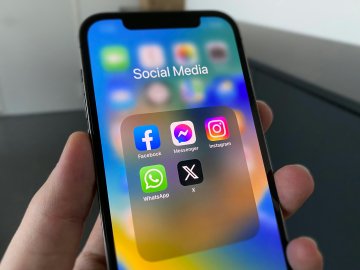The latest Cybersurvey, released by Youthworks, has revealed the complex relationships teenagers have with their lives online. The survey, called ‘Real or Fake?’ looks at how 1,433 young people across five schools have managed their online lives, their understanding of fake information, and relationships online.
Positive Experiences and Digital Connectivity
A significant finding is that 84% of respondents hardly ever or never feel depressed after spending time online. For these students, they report using their time online as a space for fun, friendship, mood management, entertainment, and learning. Additionally, 81% of respondents report feeling closer to their friends through social media, highlighting its role in maintaining social connections.
In terms of accessing the internet and apps, 85% of students reported having their own phones with Wi-Fi access. This rate increases with age, as 68% of 11-year-olds, 89% of 13-year-olds, and 97% of 15-year-olds have access to their own phones.
Mental Health and Body Image Concerns
Despite the positive aspects reported by young people, concerns related to mental health and body image were also raised. Almost one in four students often believe that "other people have a better life than me" due to online content. Furthermore, nearly one in five admitted that what they see online has led them to attempt to change their body shape.
Conversely, many respondents, particularly those who noted having a disability of feeling ‘unsure where they fit in’ also reported that they ‘feel it is easier to be accepted online or to ‘“find people like me”’. The study highlights that 52% of respondents use the internet to escape from personal problems, revealing that social media and the internet are being used as a safe space for many young people.
Online Harms and Misinformation
Although 80% of young people responded that they had been ‘taught not to believe all I see online’. the survey highlights a clear gender difference in how teens perceive online risks and misinformation, with boys tending to be overconfident in their ability to spot fake content, while girls are more sceptical about what they see online and are more likely to verify sources.
Cyberhate and online bullying have been revealed as a significant issue for many teens responding to the survey. Within online games, 48% of boys reported seeing cyberhate, while girls were twice as likely to personally face cyberaggression, particularly related to their appearance, rumour spreading, and sexual harassment.
Vulnerable Young People and Digital Disadvantages
The data reveals that teens who are vulnerable offline—whether due to their mental health, disabilities, or family circumstances—are more likely to experience online harm. Despite an overall decrease in cyberbullying, young people with additional needs and vulnerabilities reported significantly higher rates of cyberbullying compared to their peers. The Cybersurvey states that they are at a "digital disadvantage," facing both the challenges of the online world and the offline difficulties they already deal with.
The results of the latest Cybersurvey reveal that young people are continuing to find benefits and negatives to how they use technology. Whilst many students reported using the internet to strengthen friendships and explore creative outlets, they also reported significant concerns related to mental health, body image, and exposure to online harm.
As young people continue to utilise social media and the internet in their daily lives, highlighting important services such as Report Harmful Content can help to ensure young people have a place to go if they do see something harmful online.
Alongside this, integrating tools such as ProjectEVOLVE and ProjectEVOLVE EDU into school communities can support young people to develop the crucial skills they need to navigate life online safely.






